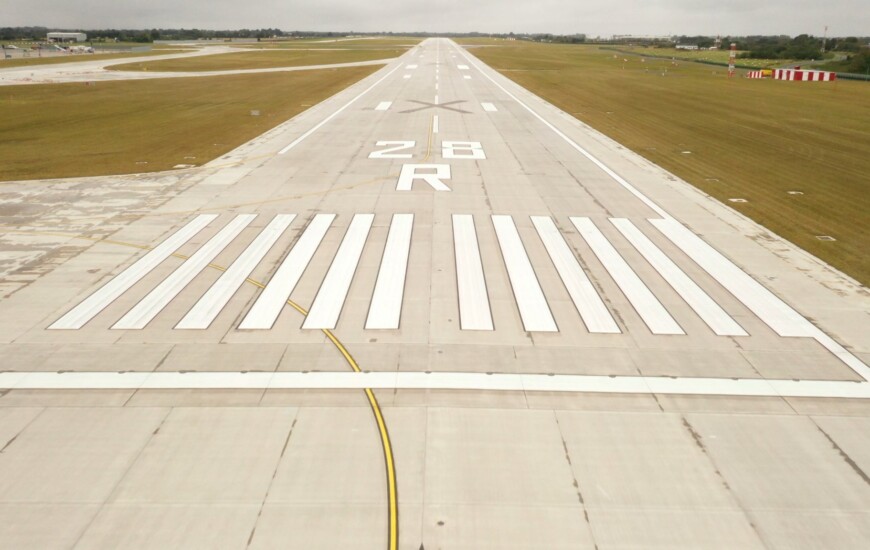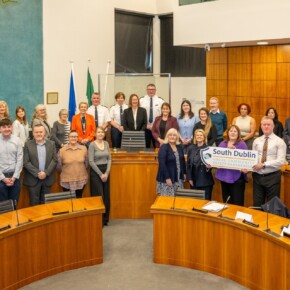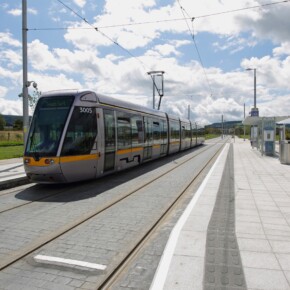Airport boss calls for cap on passenger numbers to be raised
Mike Finnerty 29 Nov 2023
The operator of Dublin Airport has warned that a cap on passenger numbers could have an impact on major sporting events that are taking place in Dublin in 2024.
Events such as the Six Nations and the 2024 UEFA Europa League final are among the events that could be affected should the cap on passenger numbers remain, according to Dublin Airport boss Kenny Jacobs.
Jacobs, who serves as the chief executive with the DAA, said that while the airport is “fully compliant” with the current cap of 32 million passengers per year, he said the limit is leading to “tough conversations” with airlines.
Jacobs appeared before the Oireachtas Joint Committee on Transport, and said that DAA is in the process of raising the passenger cap by 25% to 40 million.
While he said he would like the issue rectified “as quickly as possible,” he conceded it “will take a while”.
Jacobs claimed that caps on passenger numbers “do not work” for sustainability and warned that 16,000 potential jobs would be lost if the cap is not raised.
In the context of the current passenger cap, as many as 40,000 football fans are expected in Dublin next May for the Europa League final, and 40,000 football fans passing through Dublin Airport in one day would chip away at the current cap on passengers.
Speaking to RTÉ in September, Jacobs said “there is a clear opportunity to grow Dublin Airport further, providing more jobs and more economic growth for Ireland in the process, but only if the planning and regulatory environment is able to keep pace.”
“If Dublin Airport is not able to accommodate these opportunities for growth, it will be other major city airports – the same airports that Dublin Airport currently competes with on a daily basis for air connectivity – that will benefit instead.”
Research conducted by InterVistas on behalf of DAA found that if the cap on passengers were to remain at 32 million, it would lead to the economy losing nearly 18,000 jobs by 2030.
It noted that numbers at Dublin Airport are expected to reach 39.6 million by 2030, 46.6 million by 2040 and 55 million by 2055.
Jacobs claimed the cap remaining on passenger numbers at Dublin Airport would carry “huge implications for Ireland’s tourism sector and business community, with trade and visitor numbers being constrained.”
“Ireland’s ability to maximise these growth opportunities, in terms of additional jobs and economic activity, would go a long way to enabling Ireland to accommodate the strong population growth that it is expecting over the decades to come,” he added.
In recent weeks, Jacobs’ comments have come under fire from politicians, when Green Party MEP Ciáran Cuffe accused Jacobs of “washing his hands” of the environmental responsibility that comes with running a major airport.
“By advocating for increasing the passenger cap, the DAA is effectively offering its green light for aviation emissions to increase,” Cuffe wrote in a letter to Jacobs.
Jacobs said there would be “further difficult choices” for Irish aviation should Ireland continue to be chosen to host major sporting events.
“We may be saying you need to go to Shannon, Cork, Belfast because we are managing to the 32 million passengers,” Jacobs told members of the committee.
He said that a cap on passenger numbers would reduce connectivity and move flights to other hubs such as Manchester and Edinburgh, which Jacobs believes would drive business out of Ireland.
Jacobs openly dismissed the idea of caps on passenger numbers, saying they “don’t work for sustainability and they don’t work for moving capital city traffic to regional airports.”
In recent weeks, transport analysts and elected representatives have suggested that smaller regional airports such as Shannon, Knock or Cork be used to take some of the pressure off Dublin.
Should a hard passenger cap be implemented at Dublin Airport, Jacobs claimed that fares would go up and “sustainability would go backwards” as airlines would not designate newer, quieter, and more fuel-efficient aircraft to Ireland.
“We are now turning airlines away, we are turning growth away,” he said.
Jacobs said Dublin Airport was a “good neighbour” in Fingal, citing their €10 million community engagement fund, and that the airport was working hard to ensure that “net zero” carbon emissions were achieved by 2050.
Local Independent Councillor Joe Newman disabused the notions that Dublin Airport was acting as a “good neighbour,” saying that consultations between the site and the local community are mere “lip service.”
“All we ask for is to be kept in the loop when these decisions are made. It is not enough for the DAA to send out emails to local residents informing them of their plans, they actually need to be meeting with us here, on the ground,” he said.











